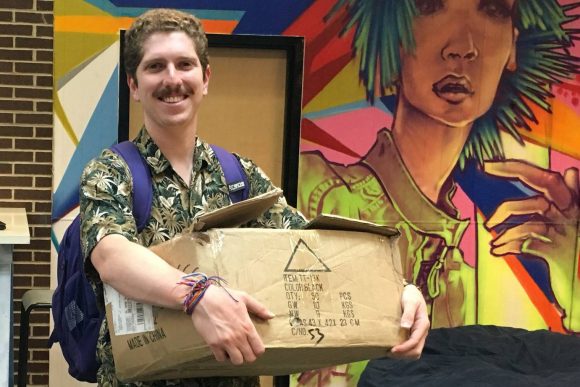Mornings at the Gratz Center were lively, to say the least. The Gratz Center is the annex to Chicago’s Fourth Presbyterian Church, right in the middle of Magnificent Mile. Surrounded by insurmountable amounts of pedestrian traffic, the Gratz Center provides a place of respite from the 90-degree weather. Even their WiFi password is free. During the summer, Gratz is home to many church-related projects: religious summer school, food programs for the homeless, and a small three-week workshop called Humanities Without Walls.
Humanities Without Walls (HWW) is an annual workshop intended to provide advanced PhD students with career tools and options outside of academia.The workshop is one of many programs Chicago Humanities Festival (CHF) runs outside of their regular programming.
At the core of the workshop is a meaningful anxiety. Thirty PhD students ponder whether or not they can succeed in the saturated academic job market. They wonder if perhaps they have made a mistake in pursuing a PhD, and they want to obtain valuable skills in order to transition into the world of business. The workshop assuages these fears by letting them know they already possess the skills necessary to make the transition, if they desire.
“I am so grateful,” said one student leaving her PhD program, “to be making this choice on my own terms, without bitterness, and with wonderful, supportive people in my corner.” But not all students leave their programs. In fact, most choose to finish their respective programs and obtain their degree. However, now that they have been exposed to different career paths, they do not feel tied to obtaining the elusive tenure-track position.
HWW took most of the time during my MAPH internship at Chicago Humanities Festival. By the time I began working for CHF, another fellow had dutifully planned most aspects of the workshop. I was charged with making sure everything was prepared—mostly food and coffee deliveries—for the workshop to run smoothly. During the three-week workshop, I handled all kinds of logistical issues, from transporting students using public transit to managing tech issues for presentations.
Though my time at CHF was brief, I dipped my hands into several projects and began to understand how a reputable nonprofit works. As I make my own transition to professional work in Daytona Beach, Florida, I intend to support organizations who support humanistic thought. As I’ve learned from MAPH and HWW: “Science can tell you how to clone a t-rex. Humanities can tell you why this might be a bad idea.
– Stefano Cagnato ’16
Contact Stefano or follow him on Twitter.

Leave a Reply